Symposium on Digital Activism in Pandemic Times
- Annenberg School for Communication
The Center on Digital Culture and Society (CDCS) and the Media, Inequality & Change Center (MIC), present the symposium: “Digital Activism in Pandemic Times”
In 2020 the world faced more than one acute crisis as the COVID-19 pandemic shaped global uprisings in response to the murder of George Floyd, spurred increased anti-Asian rhetoric and hate crimes, and compounded the rising hold of both neoliberal and far-right politics. Already disadvantaged social groups became more vulnerable as the virus made physical and communal spaces of support dangerous. Yet, from these conditions, and through the innovative use of digital technologies, we observed the expansion and development of collective struggles and communities of care, thus providing the essential infrastructures for navigating crises, coping with traumas, and rebuilding communities. This work is among the most valuable legacies of the global crises and ought to be carefully documented and studied.
Jointly organized by the Center on Digital Culture and Society (CDCS) and the Media, Inequality & Change Center (MIC), the symposium “Digital Activism in Pandemic Times” represents our ongoing endeavor to help promote a public culture of documenting and studying civic engagement and social justice struggles during the COVID-19 pandemic. Invited speakers will examine how individuals and communities mobilize for civic activism and mutual care, build solidarities and collective identities, fight racism, xenophobia and hate, and struggle for social and racial justice through mundane and creative uses of digital media and communication.
Schedule
3:15-4:00 pm Welcome Reception, Plaza Lobby
4:00 pm Welcoming Remarks, Room 500
Sarah J. Jackson, Co-Director, Media, Inequality & Change Center
and Guobin Yang, Director, Center on Digital Culture and Society
4:15-5:30 pm Panel 1: “Hyper-local, digital unbound organizing", Room 500
- Moderator: Zoe (Mengyang) Zhao, CDCS Doctoral Fellow
Speakers:
- Danielle Brown, University of Minnesota, “Still Fighting for Justice: Black Lives Matter and the Challenges of Activism on Ground Zero”
- Elisabetta Ferrari, University of Glasgow, “Solidarity in the (post)pandemic: latency and immediacy in mutual aid activism”
- Mara Mills, New York University, “How to be Disabled in a Pandemic”
5:30-6:45 pm Panel 2: “Digital Solidarities, Labor, & the Global”, Room 500
- Moderator: Kinjal Dave, MIC Doctoral Fellow
Speakers:
- Paula Chakravartty, New York University, "Essential Workers and Digital Revolts: Reflections on Labor Excess“
- Rachel Kuo, University of Illinois, “Feminist Media-Making and Building Collective Politics”
- Sarah Shugars, Rutgers University, “Pandemics, Protests, and Publics”
About the Speakers
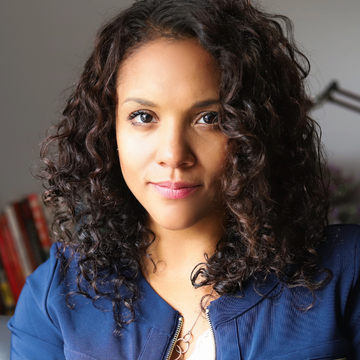
Danielle Brown (University of Texas, Austin) is the John & Elizabeth Bates Cowles Professor of Journalism, Diversity & Equality in the Hubbard School of Journalism and Mass Communication at the University of Minnesota. She is an award-winning political communication researcher investigating the intersection of news media, underserved and historically excluded communities, and social justice efforts. She uses her research to engage with journalists and their communities.
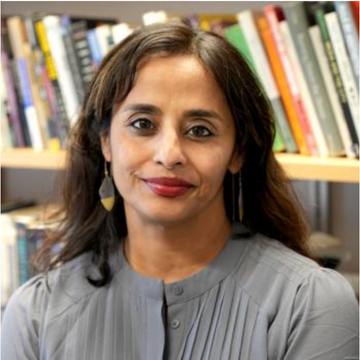
Paula Chakravartty is James Weldon Johnson Associate Professor at the Gallatin School and the Department of Media, Culture and Communication at New York University. She is currently completing a monograph titled Media and Economic Violence. She is also working on two on-going collaborative projects: a co-authored book on Media, Race and the Infrastructures of Empire; and a field-based partnership research project on migrant mobility and debt in North India. She has published widely in numerous journals in Media Studies and Communication. Her books include Race, Empire and the Crisis of the Subprime (Johns Hopkins University Press, 2013), Media Policy and Globalization (Edinburgh University Press, 2006), and Global Communications: Towards a Transcultural Political Economy (Rowman & Littlefield Publishers, 2008). She serves as the Vice President of the NYU Chapter of the AAUP (American Association of University Professors)
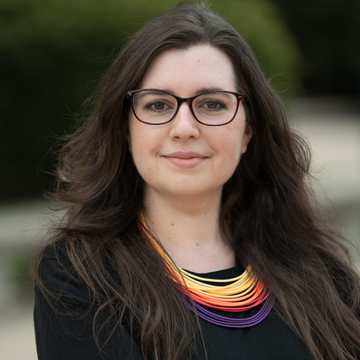
Elisabetta Ferrari is a Lecturer in Digital Media at the University of Glasgow, UK. Her research takes a comparative, critical, qualitative approach to examine the social and political implications of digital technologies, with a specific focus on social justice activism. She is currently working on a comparative project about mutual aid activism across the U.S, the U.K., and Italy, which is funded by the British Academy. Prior to joining Glasgow, she was a postdoctoral fellow at the Digital Studies Institute at the University of Michigan and at the Center on Digital Culture and Society at the University of Pennsylvania. She holds a Ph.D. in Communication from the University of Pennsylvania.
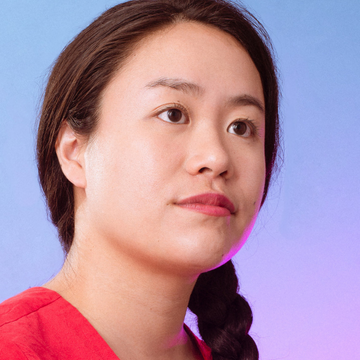
Rachel Kuo writes, teaches, and researches race, social movements, and digital technology. She is currently an Assistant Professor of Media and Cinema Studies at the University of Illinois, Urbana-Champaign. She is also a current Fellow at the Center for Democracy and Technology. She is a founding member and current affiliate of the Center for Critical Race and Digital Studies and also a co-founder of the Asian American Feminist Collective, where she is co-editing the anthology Black and Asian Feminist Solidarities (under contract, Haymarket Books). Her writing on feminism, media, and activism and creative political projects has been featured in New Media and Society, Social Media and Society, Teen Vogue, TruthOut, NBC, The New Yorker, and more.
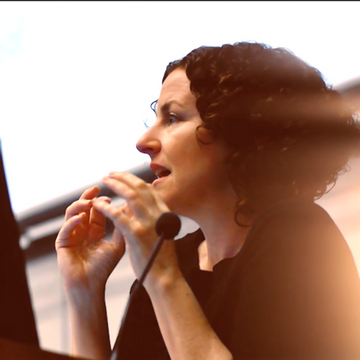
Mara Mills is Associate Professor of Media, Culture, and Communication at New York University. She is co-founder and co-director of the NYU Center for Disability Studies, where she is currently directing the NSF-funded project How to be Disabled in a Pandemic. She is also co-founder and editorial board member of the journal Catalyst: Feminism, Theory, Technoscience. Most recently, she is the co-editor of Testing Hearing: The Making of Modern Aurality (Oxford, 2020) and Crip Authorship: Disability as Method (NYU Press, forthcoming July 2023).
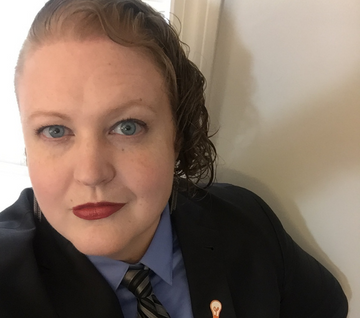
Sarah Shugars (they/them/theirs) is an Assistant Professor of Communication at Rutgers University. They study how everyday people talk about, engage with, and collectively shape the modern world around them. Bringing together computational social science and the principles of deliberative democracy, they develop new text and network methods in order to examine the relational nature of public life, the linguistic modes through which people express themselves, and the technological affordances which shape digital discourse. They are a first-generation to college student and are deeply committed to increasing access and equity in higher education.
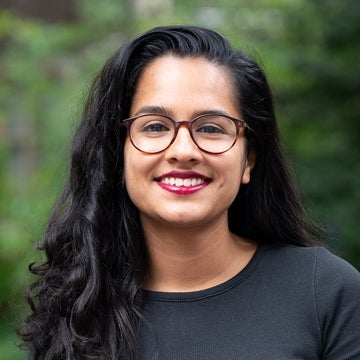
Kinjal Dave is a Ph.D. student at the University of Pennsylvania's Annenberg School for Communication. She is an academic, filmmaker, and comedian in training. Her dissertation research examines the formation of women's technical labor in the context of Gujarati women in 1980s U.S. electronics manufacturing. Her writing has been previously published by Hyperallergic, Kajal Mag, Data & Society Research Institute, and the history of science journal Isis. She is a member of P.O. Box 34, which publishes the writing and art of those incarcerated at SCI-Chester. In addition to being an affiliate of the Media Inequality and Change (MIC) Center, she is an active doctoral fellow with the Center for Advanced Research in Global Communication (CARGC) and Penn's Center for Experimental Ethnography.
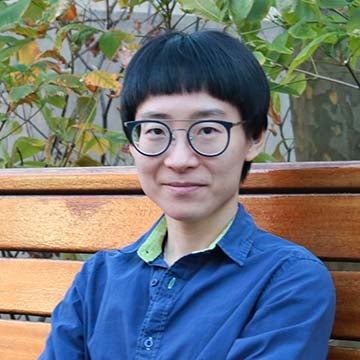
Zoe (Menyang) Zhao (she/they) is a Ph.D. candidate in sociology and a doctoral fellow of the Center on Digital Culture and Society (CDCS) at the University of Pennsylvania. Their interdisciplinary research centers on digital labor and social movements in a global context, with a particular focus on new forms of technology, work, care, and activism under the platform and venture capitalism. Their academic works have been published in Information, Communication & Society, Critical Sociology, and Social Science Quarterly. They are also a freelance writer and artivist in digital culture, care ethics, and diaspora activism.
About the Center Directors
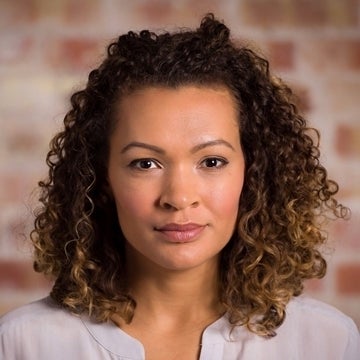
Sarah J. Jackson studies how media, journalism, and technology are used by and represent marginalized publics, with a focus on how communication arising from Black, feminist, and activist spaces contributes to US progress. She is co-director of the Media, Inequality, & Change Center.
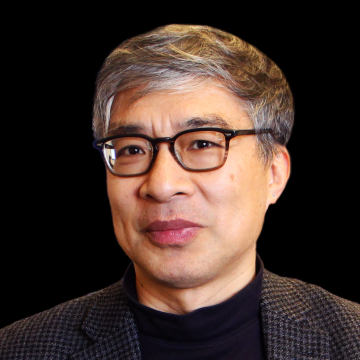
Guobin Yang is the Grace Lee Boggs Professor of Communication and Sociology at the Annenberg School for Communication and Department of Sociology at the University of Pennsylvania, where he is the Director of the Center on Digital Culture and Society. He studies social movements, digital culture, and global communication.
Events
View AllDisclaimer: This event may be photographed and/or video recorded for archival, educational, and related promotional purposes. We also may share these video recordings through Annenberg's website or related platforms. Certain events may also be livestreamed. By attending or participating in this event, you are giving your consent to be photographed and/or video recorded and you are waiving any and all claims regarding the use of your image by the Annenberg School for Communication. The Annenberg School for Communication, at its discretion, may provide a copy of the photos/footage upon written request.
